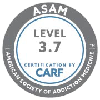In our society, there’s an ongoing dance between creation and destruction, between hope and despair. Among the many challenges we face, the effects of drug abuse stand out as one of the most heartbreaking. Families and friends witness the loss of a loved one in a way that makes them feel powerless. And it’s not just illegal substances—prescription medications, alcohol, and various legal substances have the potential to derail a person’s life. The effects of drug abuse run deep, creating ripples that touch every corner of our lives, communities, and businesses.
The Numbers Don’t Lie
Before diving into the deeper aspects, let’s start with some undeniable statistics. According to the World Health Organization (WHO), nearly 31 million people have substance use disorders. Overdose deaths, driven in large part by opioids, have killed more than 70,000 people in the U.S. alone in a single year. While these numbers offer a glimpse, the real story is in the countless interwoven lives affected by the effects of substance abuse.
Physical Effects of Drug Abuse
Physical ramifications are the most visible signs of drug addiction. They act as red flags, signaling to loved ones that something’s not quite right. But what’s really at stake here?
- Organ Damage: Chronic use of drugs like alcohol, cocaine, or methamphetamines can lead to severe organ damage, particularly the liver, lungs, and kidneys. The body wasn’t designed to process such chemicals at high doses.
- Brain Functionality: The brain, our central processing unit, isn’t immune to the effects of drug abuse. Neurological pathways can be altered, causing memory problems, impaired judgment, and significant changes in behavior.
- Physical Dependence: Over time, the body craves the substance, leading to increased dosages and, subsequently, a higher risk of overdose. Withdrawal symptoms become a reality for many, acting as a barrier to quitting.
But these physical symptoms only scratch the surface.

Psychological Effects of Drug Abuse
The psychological effects of substance abuse have a cascading impact, influencing how we perceive the world, our place in it, and how we navigate the complex maze of human interactions.
- Mental Health Decline: Drugs can intensify feelings of anxiety, depression, and paranoia. It’s a vicious cycle where mental health challenges might lead someone to drugs, but then the effects of drug abuse exacerbate those very challenges.
- Behavioral Changes: Increased aggression, irritability, and unpredictability become common traits. Relationships strain under the weight of these behavioral shifts, leading to isolation and further dependence on drugs.
- Altered Perception: A person’s understanding of reality can become distorted. Hallucinations, delusions, and a general disconnect from the world can create an environment where the individual struggles to differentiate between fact and fiction.
The Biggest Danger of Drug and Alcohol Abuse
Crucially, in this conversation a dark shadow looms ominously: overdose. It’s a phenomenon that underscores the high stakes at play. An overdose occurs when a person consumes more of a drug than the body can safely process. This excess can overwhelm the system, leading to catastrophic consequences.
What Happens to Our Bodies in an Overdose?
- Respiratory Failure: Many drugs, especially opioids like heroin and prescription painkillers, affect the brain’s area that regulates breathing. In an overdose, these drugs can slow breathing drastically or even stop it altogether. Without the essential oxygen flow, critical organs like the brain and heart begin to shut down.
- Cardiac Arrest: Stimulants, such as cocaine or methamphetamines, can overexert the heart. The erratic heart rhythms, or arrhythmias, can culminate in a sudden cardiac arrest, where the heart stops beating entirely.
- Brain Damage: Reduced oxygen due to slowed or stopped breathing can lead to hypoxia, a condition that results in lasting brain damage or even coma.
- Organ Failure: The liver and kidneys work overtime to filter toxins. A drug overdose can overwhelm these organs, leading them to shut down. Without functioning kidneys and liver, toxins accumulate in the body, causing systemic damage.
- Seizures: Overdosing on drugs, such as synthetic cannabinoids or certain prescription medications, can lead to seizures. These are not just harmful in themselves but can lead to injuries if they occur during activities like driving.

The Bigger Picture
Everything is connected. Our choices, especially those that involve the effects of substance abuse, don’t just influence us. They influence our community. Even our society at large.
Every individual lost to the effects of drug abuse is a potential innovator, creator, or community leader. When we allow this cycle to continue, we’re not just losing an individual; we’re losing potential world-changers.
What’s the lesson here? It’s twofold. First, understanding the profound physical and psychological effects of drug abuse is the foundation for creating effective interventions. But more than that, it’s about realizing that every person ensnared in the grips of addiction is someone with dreams, hopes, and the potential to make a difference.
It’s easy to look at statistics and see numbers. But behind each statistic is a person, a story, and a potential future.
The next step? Taking action.
Don’t let statistics determine your story. You have the power to change, to heal, and to inspire. Every journey starts with a single step, and in this case, that step could be as simple as a phone call.
Call (877) 843-5724 today. Reach out to Saddleback Recovery and pave the path to reclaiming your life. Remember, there’s no shame in seeking help. There’s only courage, hope, and the promise of a new beginning.








